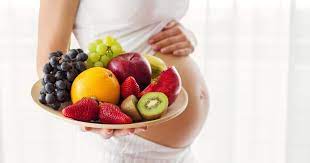The Importance of a Healthy Pregnancy Diet
During pregnancy, maintaining a healthy diet is crucial for the well-being of both the mother and the developing baby. A balanced and nutritious diet can help support the growth and development of the foetus, as well as contribute to the overall health of the mother.
Key components of a pregnancy diet include:
- Folic Acid: Essential for the development of the baby’s neural tube.
- Iron: Important for red blood cell production and preventing anaemia.
- Calcium: Vital for bone development in the baby.
- Protein: Necessary for growth and repair of tissues.
- Omega-3 Fatty Acids: Support brain development in the foetus.
Avoiding certain foods such as raw or undercooked meats, unpasteurised dairy products, and excessive caffeine is also recommended during pregnancy to reduce the risk of foodborne illnesses and potential harm to the baby.
It is important for expectant mothers to consult with their healthcare provider or a registered dietitian to create a personalised pregnancy diet plan that meets their individual nutritional needs. Regular prenatal check-ups can help monitor weight gain, nutrient intake, and overall health throughout pregnancy.
In conclusion, maintaining a healthy pregnancy diet is essential for ensuring a successful and smooth pregnancy journey. By prioritising nutritious foods and making informed dietary choices, expectant mothers can support their own health as well as that of their growing baby.
Essential Dietary Guidelines and Recommendations for Pregnant Women
- What not to eat when pregnant?
- What is the best diet for pregnant woman?
- Which fruit is best for pregnancy?
What not to eat when pregnant?
During pregnancy, it is important to be mindful of what you eat to ensure the health and safety of both the mother and the developing baby. Certain foods should be avoided during pregnancy to reduce the risk of potential harm. These include raw or undercooked meats, unpasteurised dairy products, certain types of fish high in mercury, deli meats and processed meats, as well as excess caffeine and alcohol. Additionally, it is recommended to steer clear of raw eggs, soft cheeses, and certain types of seafood that may contain high levels of contaminants. By being aware of what not to eat when pregnant and making informed dietary choices, expectant mothers can help protect the well-being of themselves and their unborn child.
What is the best diet for pregnant woman?
The best diet for a pregnant woman is one that is balanced, varied, and rich in essential nutrients to support both her own health and the optimal development of her baby. A pregnancy diet should include a mix of whole grains, lean proteins, fruits, vegetables, dairy products, and healthy fats. It is important for pregnant women to focus on getting enough folic acid, iron, calcium, protein, and omega-3 fatty acids through their diet to support the growth and well-being of the foetus. Consulting with a healthcare provider or a registered dietitian can help expectant mothers create a personalised meal plan that meets their individual nutritional needs during pregnancy.
Which fruit is best for pregnancy?
During pregnancy, incorporating a variety of fruits into your diet is beneficial for both you and your baby. However, certain fruits are particularly recommended for their nutritional value during this crucial time. Citrus fruits like oranges and grapefruits are rich in vitamin C, which supports the immune system and aids in iron absorption. Berries such as strawberries, blueberries, and raspberries are packed with antioxidants and fibre, promoting digestive health and providing essential nutrients. Bananas are another excellent choice due to their high potassium content, which can help regulate blood pressure and reduce the risk of muscle cramps. Ultimately, a diverse selection of fruits can contribute to a well-rounded pregnancy diet that supports optimal health for both mother and baby.

